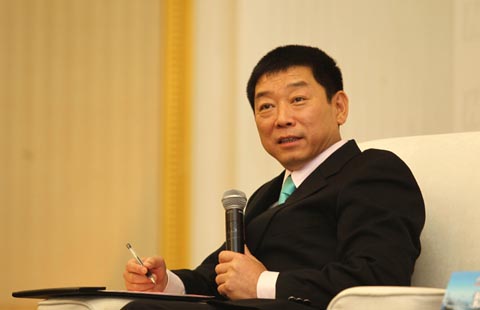Intel to invest $1.5 billion in China mobile chipmakers
(Xinhua) Updated: 2014-09-27 15:23BEIJING - Intel on Friday said it had agreed to buy a 20 percent stake in two Chinese mobile chipmakers for 9 billion yuan ($1.5 billion).
The investment will be via a new holding company under Tsinghua Unigroup which owns mobile chipmakers Spreadtrum Communications and RDA Microelectronics. Unigroup is a subsidiary of state-owned Tsinghua Holdings Co run by Beijing's Tsinghua University.
According to Strategy Analytics, Qualcomm, MediaTek and Spreadtrum were the world's three largest mobile chip makers in the first quarter of the year with market shares of 66 percent, 15 percent and 5 percent, respectively.
 |
| Nvidia sues Qualcomm, Samsung over patent infringement |
 |
| Qualcomm denies financial links with Chinese expert |
The investment represents a 170-percent premium for Unigroup who acquired the two companies for $2.7 billion less than a year ago. The matter is still subject to regulatory approval, but the two sides expect to close the deal early in 2015.
After weeks of rumors, the announcement comes as the UScompany, best known for personal computer chips, is struggling for a bigger slice of a mobile chip market dominated by Qualcomm.
"This partnership will also enhance our ability to support a wider range of mobile customers in China and the rest of the world by more quickly delivering a broader portfolio of Intel architecture and communications technology solutions," said Brian Krzanich, Intel CEO. China is now the largest consumer of smartphones and has the most Internet users in the world.
"The semiconductor industry has become a national priority for China," Zhao Weiguo, chairman and president of Unigroup, said.
The collaboration will extend from design and development to marketing and equity investment, Zhao added.
Gu Wenjun, an analyst with market research agency iSuppli, said that in the past, Chinese companies were often rejected when they sought cooperation with industry leaders. The cooperation between Intel and Tsinghua Unigroup, however, is on a more equal footing and Tsinghua will not only get technology, but support on product development and marketing.
Wu Nanjian, a Chinese Academy of Sciences research fellow at the Institute of Semiconductors, believes Intel must focus on energy efficiency for the mobile market.
If the agreement is approved, Spreadtrum will create and sell a family of Intel architecture chips to go on the market in the second half of next year.
Spreadtrum and RDA are leading Chinese fabless semiconductor companies, developing mobile chipset platforms for phones and other consumer electronics. Their customers include Samsung, Lenovo and Huawei.
- China Mobile to pare smartphone subsidies soon
- Higher prices boost domestic aluminum production
- Use of the renminbi is gaining ground globally
- Short sellers expect Alibaba price slide
- Necessity is the mother of invention for developers
- Shanghai General Motors recalls Cadillac SRX
- Shanghai, HK stock program will offer flexibility
- China's August industrial profits down 0.6%

















